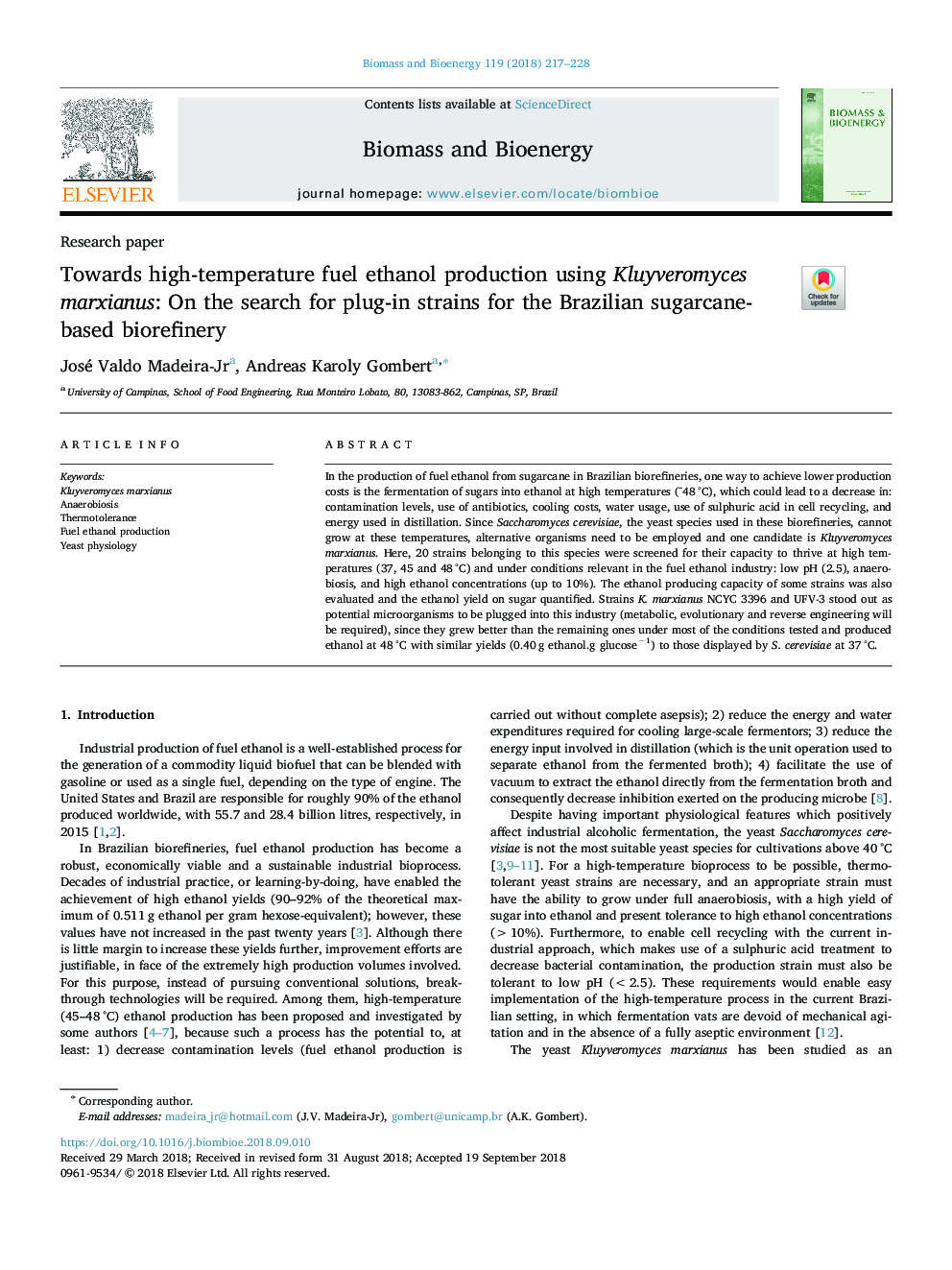| Article ID | Journal | Published Year | Pages | File Type |
|---|---|---|---|---|
| 11027916 | Biomass and Bioenergy | 2018 | 12 Pages |
Abstract
In the production of fuel ethanol from sugarcane in Brazilian biorefineries, one way to achieve lower production costs is the fermentation of sugars into ethanol at high temperatures (Ë48â¯Â°C), which could lead to a decrease in: contamination levels, use of antibiotics, cooling costs, water usage, use of sulphuric acid in cell recycling, and energy used in distillation. Since Saccharomyces cerevisiae, the yeast species used in these biorefineries, cannot grow at these temperatures, alternative organisms need to be employed and one candidate is Kluyveromyces marxianus. Here, 20 strains belonging to this species were screened for their capacity to thrive at high temperatures (37, 45 and 48â¯Â°C) and under conditions relevant in the fuel ethanol industry: low pH (2.5), anaerobiosis, and high ethanol concentrations (up to 10%). The ethanol producing capacity of some strains was also evaluated and the ethanol yield on sugar quantified. Strains K. marxianus NCYC 3396 and UFV-3 stood out as potential microorganisms to be plugged into this industry (metabolic, evolutionary and reverse engineering will be required), since they grew better than the remaining ones under most of the conditions tested and produced ethanol at 48â¯Â°C with similar yields (0.40â¯g ethanol.g glucoseâ1) to those displayed by S. cerevisiae at 37â¯Â°C.
Related Topics
Physical Sciences and Engineering
Chemical Engineering
Process Chemistry and Technology
Authors
José Valdo Madeira-Jr, Andreas Karoly Gombert,
